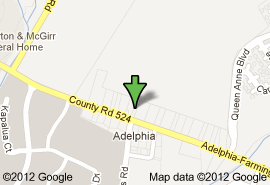When selecting MERV filters, understanding their ratings and how they impact air quality is vital. You need to evaluate how higher MERV ratings, which capture smaller particles, can restrict airflow and potentially increase your energy costs. By analyzing the compatibility of these filters with your HVAC system and planning smart indoor air quality (IAQ) strategies, you can improve air quality without spiking your energy bill.

Understanding MERV Ratings and Their Impact on Air Quality
When selecting MERV filters for your home, a rating between 8 and 13 often strikes the best balance between air quality and HVAC efficiency. These filters can capture particles such as mold spores, pet dander, and fine dust, greatly improving indoor air quality. However, it’s essential to check your HVAC system’s manual to confirm it can handle the increased airflow resistance associated with higher MERV ratings to avoid straining your system and hiking your energy bill.
Breakdown of MERV 8–13 filters and Temprite’s tailored IAQ recommendations
To optimize indoor air quality without straining your HVAC system, understanding the differences between MERV 8 and MERV 13 filters is crucial.
- MERV 8 filter: Captures 70% of particles between 3.0 and 10 microns, suitable for most homes with good airflow and minimal strain on HVAC systems.
- MERV 11 filter: A midpoint option, capturing more particles than MERV 8 but fewer than MERV 13, balancing filtration and airflow.
- MERV 13 filter: Captures up to 90% of particles between 3.0 and 10 microns, but can restrict airflow and increase energy costs if the HVAC system is not compatible.
- Indoor air quality: Higher MERV ratings like MERV 13 are better for homes with occupants having allergies or asthma, but may not be necessary for average households.
- HVAC energy efficiency: Temprite advises evaluating system compatibility to ascertain that higher MERV filters do not compromise HVAC efficiency and increase energy bills.
The Link Between Airflow Restriction and Energy Costs
When you install high-efficiency MERV filters, it’s essential to take into account their impact on airflow and subsequent energy costs. Higher MERV ratings, especially above 13, can restrict airflow, forcing your HVAC system to work harder and potentially increasing energy consumption. To prevent this strain, Temprite matches your system with the right filters and implements strategic maintenance, ensuring you benefit from improved air quality without spiking your energy bill.
How Temprite prevents HVAC strain with system-matched filters and maintenance
Temprite Heating and Cooling specializes in improving indoor air quality without compromising HVAC efficiency, and an essential aspect of this is selecting the right filters and maintaining them properly.
To prevent HVAC strain, consider the following:
- MERV Filter Ratings: Choose filters that match your system’s capabilities to avoid blower fan strain.
- Static Pressure in HVAC: Monitor static pressure to verify it remains within ideal ranges.
- HVAC Maintenance Plan: Regular maintenance helps in identifying and addressing issues early.
- HVAC System Upgrades: Upgrade your system to handle higher MERV filters efficiently.
- Customized Solutions: Temprite provides tailored solutions to balance air quality and system performance.
Retrofitting and Compatibility for Older HVAC Systems
When integrating high-MERV filters into older or standard HVAC systems, it’s essential to assess the system’s compatibility to avoid airflow restriction and increased energy costs. Older systems may struggle with filters above MERV 11, as they can reduce efficiency and strain the system. To guarantee peak performance, you may need to retrofit your HVAC system or select a MERV rating that balances air quality improvement with system compatibility. This could involve upgrading components or choosing filters that maintain airflow without compromising functionality.
Temprite solutions for integrating high-MERV filters into older or standard systems
Integrating high-MERV filters into older or standard HVAC systems can noticeably enhance indoor air quality, but it often raises concerns about potential energy cost spikes. Here’s how Temprite Heating and Cooling addresses these concerns:
- Assess System Compatibility: Verify the HVAC system can handle the increased pressure drop of high-MERV filters.
- Choose Low-Resistance Filters: Opt for filters designed to minimize energy consumption.
- Retrofit HVAC Filters: Upgrade existing systems with compatible high-MERV filters.
- Monitor System Performance: Regularly check for any drops in efficiency or increases in energy costs.
- Prioritize Respiratory Health: Select filters that improve indoor air quality without compromising HVAC efficiency.
Why Smart IAQ Planning Protects Both Health and Efficiency
When you implement smart Indoor Air Quality (IAQ) planning, you protect both your health and the efficiency of your HVAC system. Filtered air reduces the presence of pollutants, while monitored airflow guarantees that your system operates at its best without unnecessary energy consumption. By managing your filters conscientiously, you can maintain clean air without spiking your energy bill.
Client benefits of filtered air, monitored airflow, and cost-conscious filter management
Optimizing indoor air quality with MERV filters can markedly benefit your health and your wallet, but it requires careful planning to avoid spiking your energy bill. Here are the key benefits:
- Reduced Allergens and Irritants: MERV filters capture dust, pollen, and pet dander, improving air quality for those with allergies or respiratory issues.
- Extended HVAC Lifespan: By protecting your system from dust and debris, MERV filters help maintain HVAC efficiency and reduce the need for costly repairs.
- Energy Efficiency: Using the right MERV rating and an ecm blower motor can minimize airflow resistance, leading to HVAC energy bill savings.
- Filter Change Alerts: Regular filter replacements, often prompted by filter change alerts, promote your system operates at peak performance without unnecessary strain.
- Balanced Filtration: Choosing between HEPA vs. MERV filters depends on your specific needs; MERV filters offer a balance between filtration and airflow, preventing excessive energy consumption.





